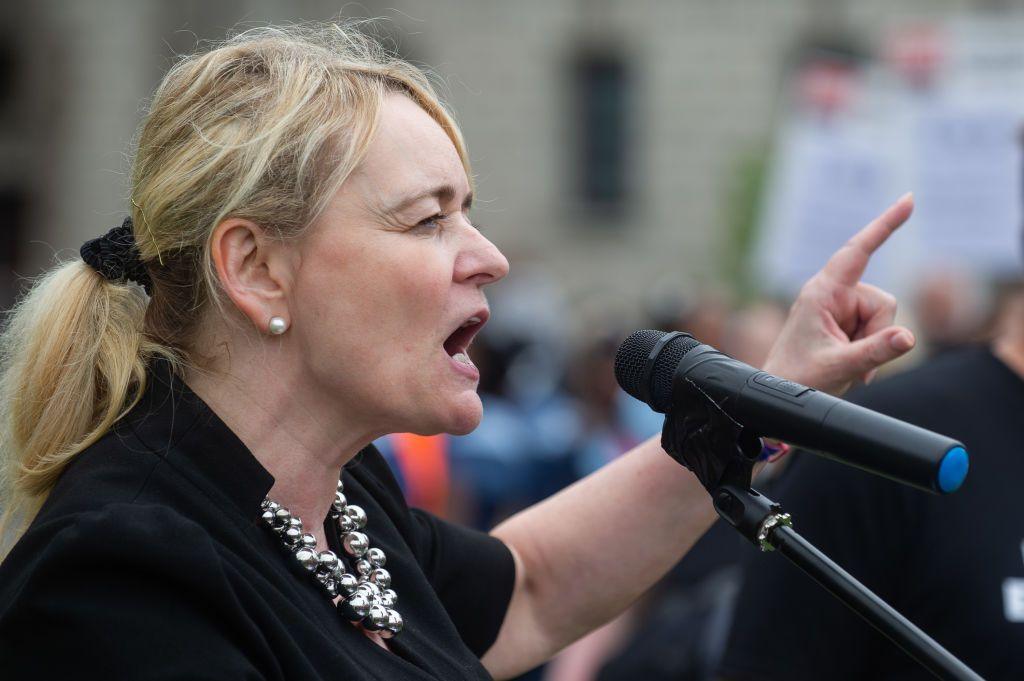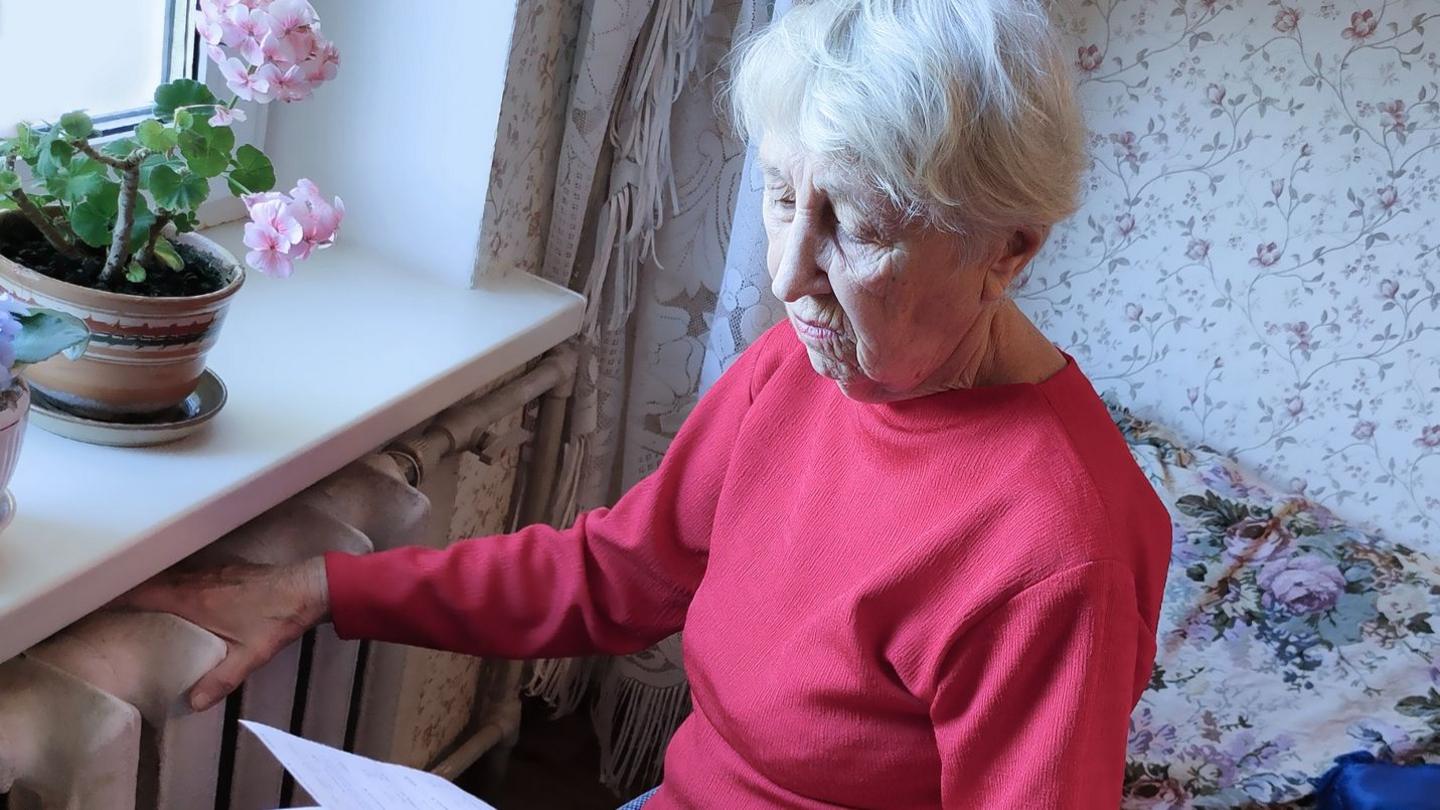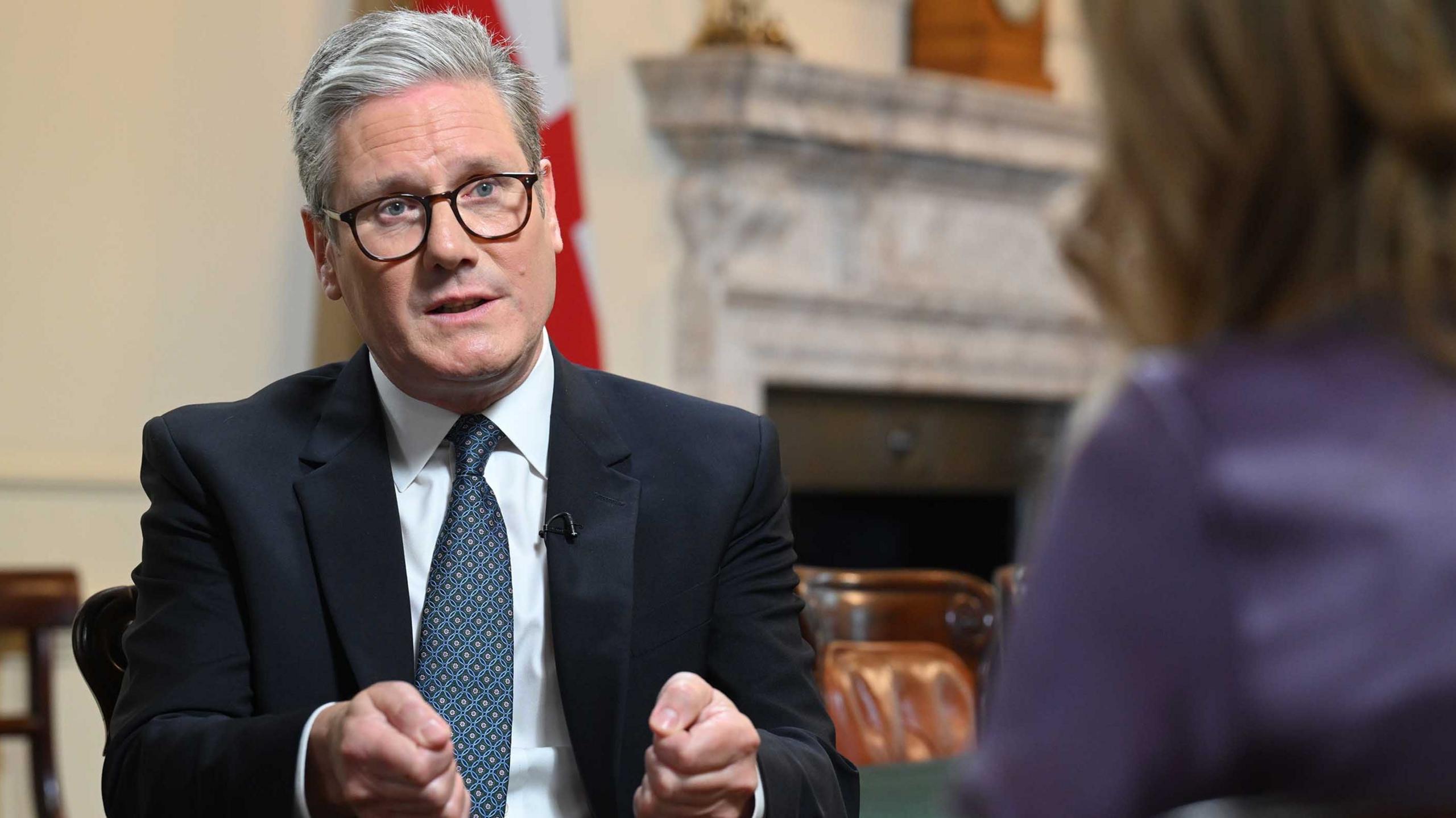Starmer faces union pressure ahead of winter fuel payment vote
PM defends cutting winter fuel payments
- Published
Leaders of two of the biggest unions have added further pressure on the government over its plan to cut winter fuel payments for millions of pensioners in England and Wales.
Unite general secretary Sharon Graham told the BBC the government should "do a U-turn", while head of the PCS union Fran Heathcote said it was a "misstep" which needed to be "put right".
Paul Nowak, head of the Trades Union Congress (TUC) which brings unions together, has also said the government should "rethink" and consider other lines of support for pensioners.
Sir Keir Starmer, who is facing a potential rebellion at a vote in the Commons on Tuesday, says the cut is necessary due to the state of the country's finances.
The change will mean more than 10 million pensioners will no longer receive the payments of between £200 and £300 a year, which will now only be made to those on low incomes who receive certain benefits.
Charities and many MPs are concerned about those still on a relatively small income who will miss out.
The vast majority of those eligible will only receive the payments if they have first claimed pension credit, a state pension top-up. It is estimated that 880,000 eligible pensioners have not claimed it.
One pensioner who will be affected by the planned cut is Marilyn, 70, from Paignton in Devon.
She told the BBC she was not entitled to pension credit because of her savings, which she keeps in case of an emergency.
"I am extremely worried, the cost of living already puts a big strain on my low income which is my state pension," she said.
Both Unite and the Public and Commercial Services Union have criticised Labour's policy at the TUC in Brighton.
Ms Graham told BBC Radio 4's Today programme the government needed to be ''big enough and brave enough to do a U-turn" on plans to cut the allowance, calling for the introduction of a wealth tax to boost government finances instead.
"Leadership is about making choices and knowing when you've done something wrong," she said.
Ms Heathcote, the general secretary of the PCS, told the BBC there would be "real backlash" which could take the form of industrial action if the government continued "along the line that they're heading" over welfare.
Mr Nowak, TUC general secretary, told BBC Breakfast he was ''really concerned'' by the impact of means testing winter fuel payments, adding that he expected the union to ask the government to "rethink" the decision.
"I hope in the Budget the chancellor will set out support available for pensioners who aren’t on pension or tax credit, but who are not well off by any means, to make sure that they are not frightened to turn on the heating this winter," he said.

Unite general secretary Sharon Graham told the BBC the the government needed to be ''brave enough'' to admit it had made a mistake
Speaking on Sunday with the BBC's Laura Kuenssberg in his first major interview in Downing Street, Sir Keir said his new government was "going to have to be unpopular" as he defended his "tough" decision to cut winter fuel payments.
He accused previous governments of avoiding confronting the cost of the winter fuel payment.
"When we talk about tough decisions, I’m talking about... the things the last government ran away from," he said.
What is the winter fuel payment and how can I still claim it?
- Published16 September
PM defends 'tough decision' over winter fuel cut
- Published8 September 2024
Watch: PM Starmer on riots, fuel payments and Grenfell
- Published8 September 2024
Winter fuel payment cut "hard decision" for MPs - Home Office Minister Diana Johnson
Chancellor Rachel Reeves has maintained the policy is a necessary move to fill a £22bn "black hole" in the public finances left by the previous government - a claim the Conservatives have challenged.
But some Labour MPs have urged the government not to go forward with the policy.
Some 11 Labour MPs were among the 27 who signed an early day motion - formal motion submitted for debate in the Commons - describing the plan as “a bureaucratic and unpopular means test” for pensioners.
Home Office minister Dame Diana Johnson told BBC Breakfast she understood how the vote was a "really hard decision" for many MPs.
"Obviously we do not want to see anyone struggling with energy bills, particularly pensioners... and that's why it's so important that the poorest pensioners are getting everything they're entitled to to support them," she said.
The Guardian has reported the potential rebellion could involve as many as 50 Labour MPs.
One Labour MP told the paper: "I’d expect the vast majority of anyone who does rebel to abstain, and remain inside the tent. Abstention is the new rebellion."
The vote will pass due to the government's sizeable majority. Those opposing the planned cut are expected to abstain rather than risk suspension by voting against the government.
In July, seven Labour MPs had the whip suspended for six months after voting against the government's amendment to scrap the two-child benefit cap.
Sir Keir, however, has not commented on the potential punishment for rebels ahead of Tuesday's vote.
When asked by the BBC's Laura Kuenssberg if he would suspend rebelling MPs from the parliamentary party, he said that was “a matter for the chief whip”.
Former pensions minister Baroness Ros Altmann said she had tabled a 'fatal motion' against "one of the worst decisions" she had ever seen, saying the policy would harm pensioners just above the threshold of claiming benefits, The Guardian reported, external.
A fatal motion is a rare parliamentary procedure that can potentially stop government legislation. It is the strongest opposition the House of Lords can take.
Baroness Altmann added that although it is unlikely her motion will pass, the move was important to give the issue additional attention.
While the decision only covers England and Wales, the Scottish government has also said it would end pensioners' universal entitlement to the payment.
The benefit is separate from other support such as Cold Weather Payments, external, and the Warm Home Discount scheme., external
Get in touch
Would you be affected by a plan to cut winter fuel payments? Please share your experiences.
Additional reporting by business reporter Lora Jones
Related topics
- Published16 September

- Published8 September 2024
